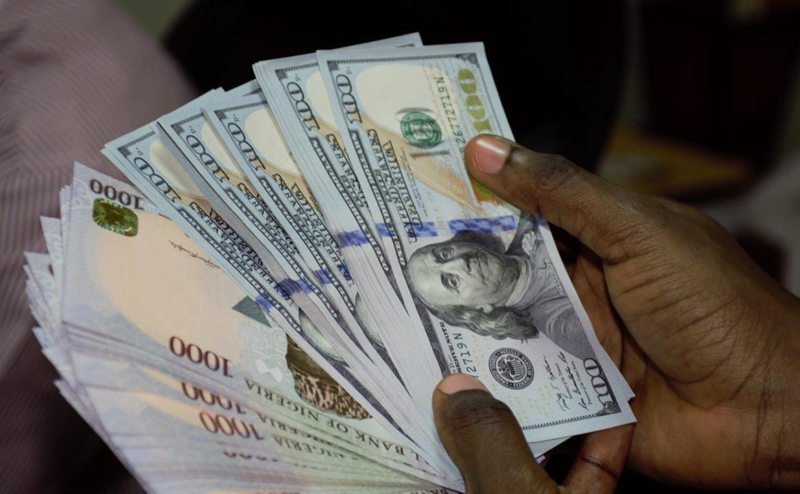The Central Bank of Nigeria (CBN) yesterday approved an exchange rate of N360 to the United States dollar in line with its liberalisation policy for the retail segment unveiled five weeks ago. During the period, the apex bank committed nearly $2 billion in the foreign exchange sub-sector through the interbank for invisible items and the 30 to 60 days forwards market for the real sector.
The Guardian further learnt that the intervention was, besides making forex readily available to end users, to strengthen the naira against other currencies following its free fall occasioned by speculations at the parallel market.
Following the announcement yesterday, the apex bank offered $85 million to banks at the rate of N357/$ to commence the new policy and $100 million to boost liquidity for players in the manufacturing sector.
However, there is the fear in certain quarters that the CBN which is merely flooding the market with forex to shore-up the naira is doing little or nothing to affect the fundamentals. Production remains low as manufacturers do not seem the primary targets in the ongoing interventions. In fact, the current move is not any different from past efforts whereby the apex bank channeled huge sums of forex through bureaux the change to defend the local currency.
CBN Governor, Godwin Emefiele, had actually flayed his predecessors for their huge supply of forex for importation, which allegedly frustrated local initiatives and drained the reserves. He specifically accused them of filtering away $66 billion in 11 years and supporting the BDCs, a situation, he declared as an anomaly. But he seems to be toeing the same path, even as hope comes alive that the new drive may end in the convergence of forex rates.
For now, the CBN has directed all banks to immediately begin the sale of forex for Business Travel Allowance (BTA), Personal Travel Allowance (PTA), tuition and medical expenses at the new threshold.
By the fresh policy, the apex bank is to sell to the financial institutions at N357/$, just as they have been directed to immediately advertise the new rates at their banking halls nationwide.
To enforce immediate compliance, the CBN reportedly dispatched examiners to banks yesterday, reiterating that they, the banks, are prohibited from selling forex funds meant for invisibles to bureaux de change (BDCs) operators.
CBN’s Director, Corporate Communications, Isaac Okorafor, maintained that the new package was different, noting that there was no longer weekly forex supply to BDC operators.
His words: “Before this current CBN management, there was a classification of BDCs, with the Grade A receiving $1 million weekly and Grade B $500,000. This is overwhelming when multiplied by the number of operators.
“At whatever level, the management of the forex market has rejuvenated domestic production, especially in items that were wholly imported into this country. It is an opportunity to change the economy’s structure, resuscitate local manufacturing and expand job creation.”
According to him, many local companies with viable projects are being supported financially to boost the import substitution strategy as well as reduce import wage bills that had impacted negatively on the national currency.
The Acting Managing Director of Afrinvest Securities Limited, Ayodeji Eboh also affirmed that the new measure was different from past attempts.“There is neither Wholesale Dutch Auction System nor Retail Dutch Auction System. All that is going on is peculiar to the situation on hand. Particularly, demand for invisibles has been highlighted. Maybe, CBN did a study before embarking on the policy and I feel it is positive so far,” he noted.
For the Director-General of the Lagos Chamber of Commerce and Industry (LCCI), Muda Yusuf, while the effect of the intervention cannot be ignored, he, however, noted that manufacturers still depend on forwards rather than on-the-spot market for access to foreign exchange, except at the black market.
According to him, the policy appears sustainable since the CBN remains the sole supplier of forex in the system. But he pleaded: “There is a need for a deliberate policy to encourage other sources of foreign exchange in the country.”
While commending the move, the President, Manufacturers Association of Nigeria (MAN), Dr. Frank Jacobs, however, observed that not all his members get dollars from the official market.
“Anything that brings the forex rate down is a positive development to the economy. Not all members source their foreign exchange from the official market. Some manufacturers, especially the small-scale firms and those affected by the ban of the 41 items, source their dollars from the BDCs and the black market.
“Lowering the rates will definitely help them and the economy. As for those sourcing from the official market, there seems to be a convergence between the rates and that is good,” he added.
Also commending the effort, a research analyst at Ecobank, Kunle Ezuh, noted that the exclusion of the 41 items had boosted local investments.“If these items were there, no doubt the pressure on the reserves would have been more. But also think of the level of awareness and investments towards producing those items locally as well as what has been achieved now, which would not have been possible,” he submitted.
The Managing Director of Cowry Asset Management Limited, Johnson Chukwu, said the new forex regime was now driven by supply factor.“Of course, no one can run this economy without providing for the forex market, because we do not manufacture many of the things needed for productive activities. If you shut out the businesses, you shut out the economy.
“For me, the CBN has achieved something at this point and I think the decision today raises the hope that the adjustment of the interbank rate is underway. This would help to achieve the long-sought convergence of all rates,” he stressed.
Guardian
This page has been viewed 406 times
Tags : Breaking news, Editors choice






























